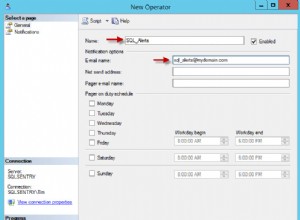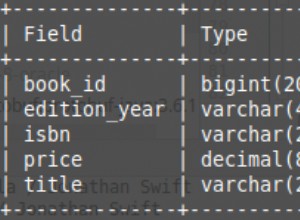Korrigieren Sie bitte zunächst das Modell so, dass Sammlungen mehrere Namen und Objekte nur einen haben, sonst wird Ihr Code sehr durcheinander:
building.cs
public List<Battery> Batteries { get; set; }
battery.cs
public long BuildingId { get; set; }
public Building Building { get; set; }
public List<Column> Columns { get; set; }
column.cs
public long BatteryId { get; set; }
public Battery Battery { get; set; }
public List<Elevator> Elevators { get; set; }
elevator.cs
public long ColumnId { get; set; }
public Column Columns { get; set; }
Jetzt fügen wir dem Modell weitere Eigenschaften hinzu, damit es uns Informationen über Eingriffe geben kann:
building.cs
public List<Battery> Batteries { get; set; }
[NotMapped]
public bool IsInIntervention => this.Status == "Intervention" || Batteries.Any(b => b.IsInIntervention);
battery.cs
public long BuildingId { get; set; }
public Building Building { get; set; }
public List<Column> Columns { get; set; }
[NotMapped]
public bool IsInIntervention => this.Status == "Intervention" || Columns.Any(c => c.IsInIntervention);
column.cs
public long BatteryId { get; set; }
public Battery Battery { get; set; }
public List<Elevator> Elevators { get; set; }
[NotMapped]
public bool IsInIntervention => this.Status == "Intervention" || Elevators.Any(e => e.IsInIntervention);
elevator.cs
public long ColumnId { get; set; }
public Column Column { get; set; }
[NotMapped]
public bool IsInIntervention => this.Status == "Intervention";
Jetzt können Sie einfach ein Gebäude fragen, ob es InIntervention ist, und es wird Ja sagen, wenn es ist, oder ob irgendetwas, das es besitzt, ist
Hinweis:Wenn das Modell nicht mit Entitäten geladen wurde, müssen Sie möglicherweise einen Trick wie diesen anwenden:EF Core linq und bedingtes include-and-theninclude-Problem um sie bedingt zu laden




